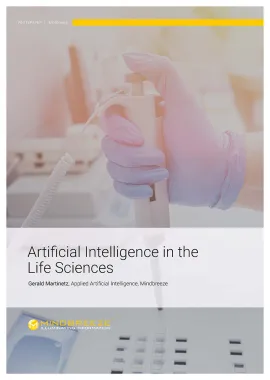The role of data in the life sciences sector
Data is the lifeblood of pharmaceutical companies, research institutes, and research facilities. The sheer multiplicity of data sources (such as study data, research databases, specialized applications, and on and on) makes searching for the information that is relevant at any given moment exceptionally difficult and time-consuming, and hence also resource-intensive. Yet in spite of that, the research process is oftentimes unsuccessful or fails to yield adequate information. In many cases, however, it is precisely this undiscovered information that employees need to perform their work efficiently.
As a result, companies are sitting on existing insights that they are unable to fully capitalize on. This slows down the pace of innovation and robs it of the potential to gain new insights from existing ones.
Wouldn’t it be easier and more efficient to search all existing data sources in one go, with a single query, and instantly access the information you need in the relevant context, augmented by additional information – all at the touch of a button?
To learn more, check out our white paper “Artificial intelligence in the life sciences” and find out how AI-based knowledge management solutions are meeting this very need and driving large-scale advancements in the life sciences sector in this and other ways.

